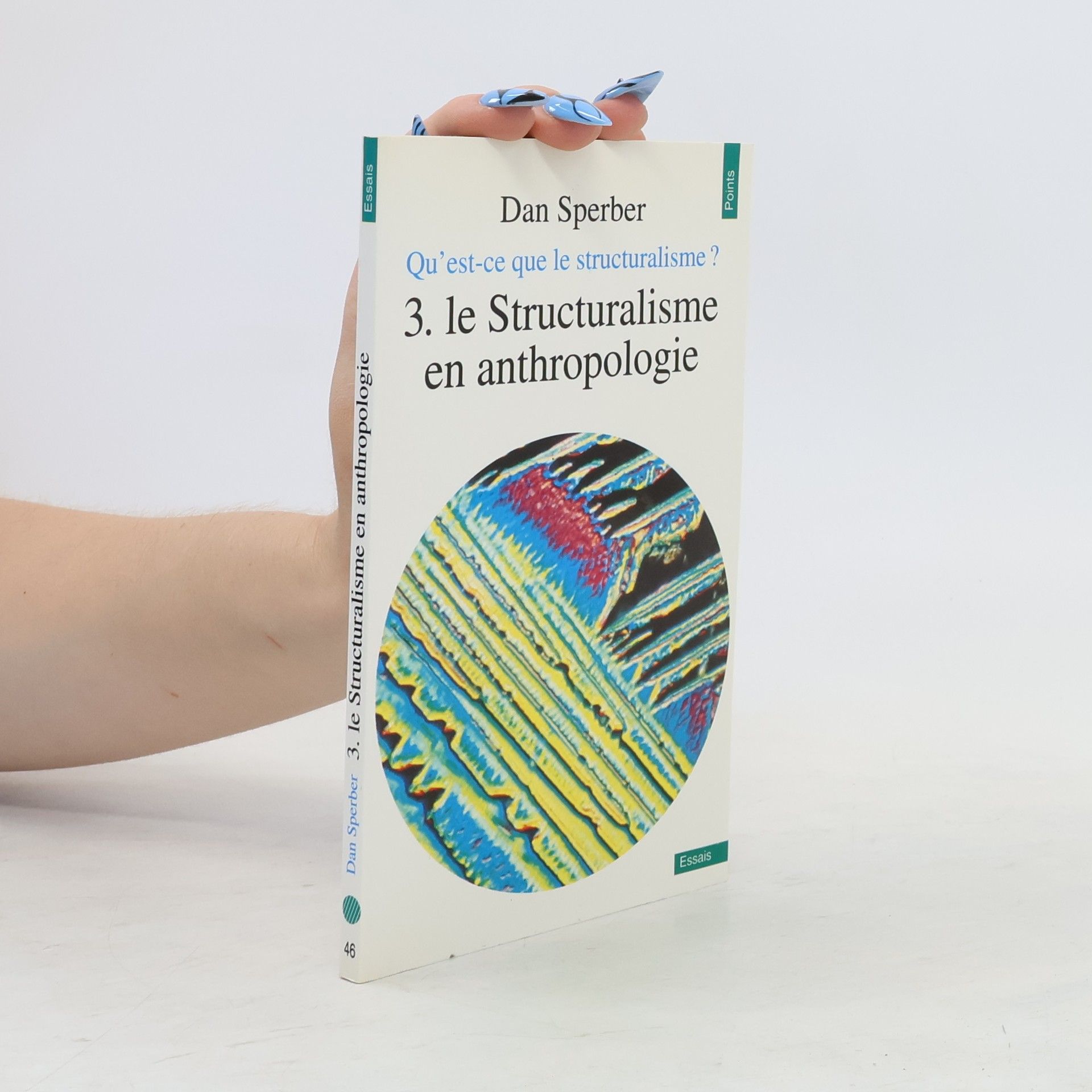The contemporary rabbi is influenced by the modern rabbinic establishments throughout the world, including the rabbinate in Israel. The rabbinate's monopoly on opinions and interpretations prevents rabbis from expressing their individual positions out of fear of delegitimization. The current structure gives the public a negative impression of the rabbinic establishment. The Importance of the Community Rabbi strives to describe and delineate key requirements for a good rabbi, i.e., one who can provide socially acceptable halachic solutions within the parameters of Orthodox thinking. Rabbi Sperber elucidates the halachic techniques and mechanisms that may be used toward this goal. These are further illustrated with stories from rabbinic literature and examples from various responsa.
Dan Sperber Book order (chronological)
Dan Sperber is a French social and cognitive scientist whose work has significantly shaped cognitive anthropology and linguistic pragmatics. He co-developed relevance theory, a key concept in understanding how meaning is conveyed and understood in communication. Sperber also pioneered the 'epidemiology of representations' approach, offering a novel perspective on cultural evolution. His contributions continue to influence fields concerned with human cognition and culture.






Reason, we are told, is what makes us human, the source of our knowledge and wisdom. If reason is so useful, why didn't it also evolve in other animals? If reason is that reliable, why do we produce so much thoroughly reasoned nonsense? In their groundbreaking account of the evolution and workings of reason, Hugo Mercier and Dan Sperber set out to solve this double enigma. Reason, they argue with a compelling mix of real-life and experimental evidence, is not geared to solitary use, to arriving at better beliefs and decisions on our own. What reason does, rather, is help us justify our beliefs and actions to others, convince them through argumentation, and evaluate the justifications and arguments that others address to us. In other words, reason helps humans better exploit their uniquely rich social environment. This interactionist interpretation explains why reason may have evolved and how it fits with other cognitive mechanisms. It makes sense of strengths and weaknesses that have long puzzled philosophers and psychologists--why reason is biased in favor of what we already believe, why it may lead to terrible ideas and yet is indispensable to spreading good ones. Ambitious, provocative, and entertaining, The Enigma of Reason will spark debate among psychologists and philosophers, and make many reasonable people rethink their own thinking.
'Filled with lively stories and vivid examples (involving ants, monsters, mosquitoes and dust bunnies, as well as paltry humans) ... its central thesis is sharp and convincing ... the argumentative theory of reason makes sense of human irrationality. Times Literary Supplement
What can be understood of other cultures? And what can we learn about people in general from the study of other cultures? In the three closely related essays that constitute this book and which have already created considerable controversy in their original French versions, and been rewritten and expanded for this edition, Dan Sperber discusses these fundamental issues of anthropology. In the first essay he analyses the way in which anthropology is written and read. In the second, he offers a novel rationalist alternative to cultural relativism, based on both anthropological and psychological arguments, and illustrated by his own fieldwork in Ethiopia. The third essay provides an assessment of the work of Lévi-Strauss, in which the arguments of the previous two essays are linked with an incisive critique of Lévi-Strauss' contribution to the study of cultural variation.
Qu'est-ce que le structuralisme?. Le structuralisme en anthropologie
- 119 pages
- 5 hours of reading
Dictionnaire encyclopédique des sciences médicales. Deuxième série, L-P. Tome dix-neuvième, OVA-PAL / publ. sous la dir. A. Dechambre [puis de] L. Lereboullet ; L. Hahn secrétaire de la dir. [puis] directeur-adjointDate de l'édition originale : 1874-1889Sujet de l'ouvrage : Médecine -- DictionnairesLe présent ouvrage s'inscrit dans une politique de conservation patrimoniale des ouvrages de la littérature Française mise en place avec la BNF.HACHETTE LIVRE et la BNF proposent ainsi un catalogue de titres indisponibles, la BNF ayant numérisé ces oeuvres et HACHETTE LIVRE les imprimant à la demande.Certains de ces ouvrages reflètent des courants de pensée caractéristiques de leur époque, mais qui seraient aujourd'hui jugés condamnables.Ils n'en appartiennent pas moins à l'histoire des idées en France et sont susceptibles de présenter un intérêt scientifique ou historique.Le sens de notre démarche éditoriale consiste ainsi à permettre l'accès à ces oeuvres sans pour autant que nous en cautionnions en aucune façon le contenu.Pour plus d'informations, rendez-vous sur www.hachettebnf.fr